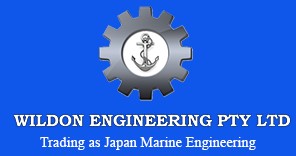How to Operate Deck Cranes & Machinery on Your Ship Properly?
Blog | September 8th, 2022Some ships transport a wide array of goods from one place to another. But before they can carry out their jobs optimally, these goods must be loaded successfully first.
Deck cranes and other related machinery are necessary to carry heavy loads and cargo on board ships and other transport vessels. And since they have been designed to perform and function continuously, they are expected to utilise components that can last for a respectable amount of time. But to ensure they can work optimally, they should be operated, cleaned, and maintained appropriately.
If you currently own these helpful components, here are some ways to operate them properly.
Hire the Right Professionals
The deck cranes and machinery on your ship can only work optimally once the right professionals are hired. Opting for those with the proper knowledge and skills in operating them can ensure that the cranes will not get destroyed along the way. When hiring the experts for these components, you must make sure that a fully capable team will be hired so they can assist with the entire lifting activities.
Maintain Safe Working Load Value
Throughout their service life, your deck cranes and machinery should only operate below their safe working load value marked on their bodies or manuals. Exceeding the said value continuously, after all, will only lead to damages that can compromise their integrity and safety. The only time this given value can be exceeded is if the cranes will be assessed and tested.
Ensure Sufficient Lubrication
All deck cranes and machinery maximise moving parts to make them effective. Now, the continuous contact with these things may end up damaging them. Hence, proper lubrication should be applied to prevent them from getting damaged. The hydraulic oil level of these components should also be marked at the minimum level to keep them operating.
Fit the Securing Clamp Optimally
The securing clamp must be fitted in the hook optimally whenever a load will be lifted. Doing this operating procedure can prevent the load from slipping and falling into other parts of the boat. It should also be checked regularly to ensure it is still in good condition. Now, when the load exerts pressure, the securing clamp’s spring-loaded system should stay close all the time.
Check the Load’s Weight
Speaking of the load, its weight should always be checked before lifting it to prevent your deck cranes and machinery from operating erroneously. Most cases of falling loads are caused by weight issues. Without checking their weight appropriately, the cranes lose their capability to lift and carry them safely across the ship. Worse, their boom may bend and ultimately drop the load, causing damage to the ship. They can likewise cause injuries among crew members.
Follow the Loading/Unloading Plan
The operation of your deck cranes and machinery should rely heavily on the things stated in your loading/unloading plan. This specific plan bares all the crucial things in carrying out the loading and unloading of cargo and other things on board. Some of these things include the anticipated path of the crane components, the responsibilities assigned to crew members, the optimum safe working load of the cranes, and many more.
Wildon Engineering through Japan Marine supplies new equipment and spares for deck cranes and machinery. For enquiries, contact us.
Optimized by NetwizardSEO.com.au
Recent Posts
- Yanmar Marine Compressors: Applications in Engine Starts, Valves, and Safety Systems
- Water vs Oil in Stern Tube Bearings: The Cost & ESG Truth Shipowners Can’t Ignore
- Yanmar Turbochargers: How Correct Spec-Matching Supports Lower SFOC and Prevents Surge
- Yanmar Diesel Generators: Planned vs Predictive Maintenance Strategies for Remote Operations
- Mareflex SOLAS Marine Tapes: Safety Applications on Marine Vessels
- Yanmar Propulsion Systems: FPP vs CPP Propellers for 6EY and 6N Series Fuel Efficiency
- Mitsubishi K.K. Purifier Separator: The Key to Cleaner Fuel and Smoother Operations
- Kemel Air Seal Retrofits: Leak-Free Stern Tube Seals and Reduced Lube-Oil Risk
- Yanmar Auxiliary Generators: Sizing for Reefers, Hotel Loads, and Dynamic Positioning Systems
- Water Lubricated Stern Tube Bearing (EVR): Proven Technology for Smooth and Quiet Operations
